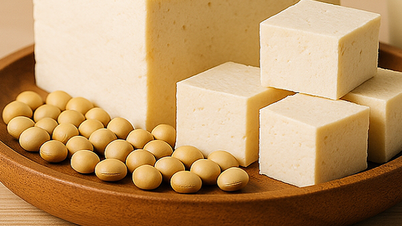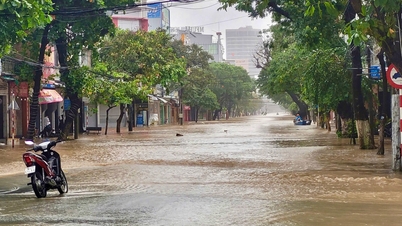Life can be incredibly busy, requiring you to have enough energy to get a lot done each day. So what gives you energy, and how can you increase it?

There are many natural elements that help the body have energy - Illustration: AI
Data from the US Centers for Disease Control and Prevention reveals that 13.5% of adults in the country feel exhausted most days. That figure for women is closer to 20%.
Meanwhile, there are many natural factors that help the body have energy, from eating nutritious foods to breathing fresh air, exercising and resting.
Here are some steps you can take to restore your energy, such as adjusting your sleep habits, managing stress, and addressing health issues.
Aim for a balanced diet
Maintaining stable blood sugar levels is important for maintaining steady energy throughout the day. Choose foods that nourish your body and provide essential vitamins and minerals. These nutrients help you use energy more efficiently, keeping you energized and focused.
Good choices include fresh fruits and vegetables, lean proteins, and high-fiber carbohydrates, such as whole grains, beans, and nuts. Also, limit sugary and processed foods. Choose whole foods whenever possible.
Increase physical activity
Regular exercise helps reduce fatigue and boost vitality. The CDC recommends about 150 minutes of moderate-intensity exercise each week, along with some muscle-strengthening exercises. Don’t start with a high intensity, but work slowly and build up to a comfortable pace.
For example, you could start with a short walk around the block. Over time, you can gradually increase the duration or intensity of your exercise, such as moving to a brisk walk or even a light jog. Every small step you take can help improve your energy levels and overall health.
Stress management
Stress is often like a double-edged sword, it can increase adrenaline to help you face immediate challenges, but too much stress can lead to burnout and fatigue.
Incorporating relaxation techniques into your daily routine is extremely beneficial, such as breathing exercises, meditation, or yoga, which help calm the mind and body.
Taking time to relax can help manage emotional stress, trigger the body's relaxation response, lower blood pressure, reduce heart rate, and slow breathing.
Sleep properly to increase energy
Getting enough sleep is crucial to maintaining good energy levels. If you regularly feel tired during the day, it could be a sign that you need to pay attention to the quality of your sleep.
Research shows that lack of sleep can make simple tasks more difficult and leave you feeling sluggish throughout the day, affecting your ability to concentrate and get things done. Both lack of sleep and too much sleep can mess with your energy levels.
The CDC recommends 7-9 hours of sleep each night, including 1-2 hours of deep sleep. A short nap is also a great way to recharge.
Drink enough water
Staying hydrated is important for keeping your body and mind energized. Water plays an important role in many bodily functions, including transporting oxygen and building cells – both of which are essential for maintaining energy levels. Some studies suggest that men should drink about 3.7 liters of water a day and women should drink about 2.7 liters.
Limit alcohol consumption
Drinking alcohol can leave you feeling tired the next day, especially as you get older. If you often feel exhausted after a night of drinking, it may be time to cut back on alcohol, especially on days when you have a lot of work to do.
Enjoy coffee in moderation
Coffee can be a great way to get a quick, natural energy boost. Try not to overdo it, though. Most people can drink 1-3 cups of coffee a day, especially in the morning so it doesn't interfere with sleep at night.
Source: https://tuoitre.vn/7-cach-giup-ban-nang-cao-nang-luong-moi-ngay-20241223194514445.htm


![[Photo] Lam Dong: Panoramic view of Lien Khuong waterfall rolling like never before](/_next/image?url=https%3A%2F%2Fvphoto.vietnam.vn%2Fthumb%2F1200x675%2Fvietnam%2Fresource%2FIMAGE%2F2025%2F11%2F20%2F1763633331783_lk7-jpg.webp&w=3840&q=75)



![[Photo] President Luong Cuong receives President of the Senate of the Czech Republic Milos Vystrcil](/_next/image?url=https%3A%2F%2Fvphoto.vietnam.vn%2Fthumb%2F1200x675%2Fvietnam%2Fresource%2FIMAGE%2F2025%2F11%2F20%2F1763629737266_ndo_br_1-jpg.webp&w=3840&q=75)
![[Photo] National Assembly Chairman Tran Thanh Man holds talks with South Korean National Assembly Chairman Woo Won Shik](/_next/image?url=https%3A%2F%2Fvphoto.vietnam.vn%2Fthumb%2F1200x675%2Fvietnam%2Fresource%2FIMAGE%2F2025%2F11%2F20%2F1763629724919_hq-5175-jpg.webp&w=3840&q=75)










































































































Comment (0)